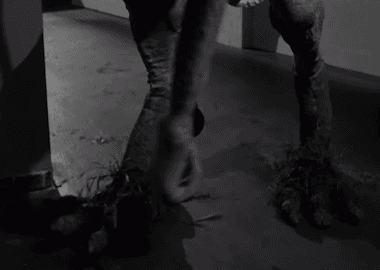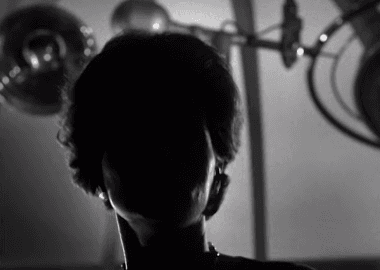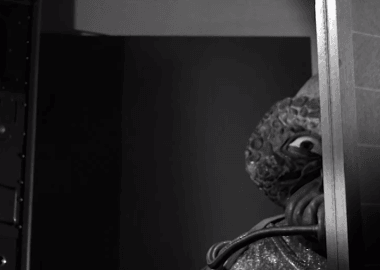#Prohaska
Explore tagged Tumblr posts
Photo


#196: V/A - “ist da wer?”
disclaimer: i played bass in PROGRAMM C, so it’s a little hard for me to simply review the subsequent 7”s, which is why i’m going to write a little bit about my memories around those records instead.
Dietmar, the guitarist from Konstrukt, was also behind the Hammerwerk label. With the two 7” compilations 'Und keiner weint uns nach' (with Fall Time., Käthe Core, Manface, Konstrukt) and 'Ist da wer?' (with Konstrukt, Kobayashi, Kawasaki, Programm C, Prohaska), he has succeeded in perfectly documenting a part of the hardcore scene.
While Konstrukt and Kawasaki (the electro project of T., the sound engineer of Konstrukt) were two veterans of the Viennese scene, Kobayashi (St. Pölten), Prohaska (Baden) and Programm C (Götzendorf/Himberg/Vienna) were among the “young and wild” of the scene.
The release show (you’ll find a scan of the poster here) for the compilation on October 30, 1998 at the EKH in Vienna is still one of the best shows I can remember. There was a limited yellow and a black vinyl version of the record.
As for the songs themselves: from grindcore and emoviolence to powerviolence and industrial (Kawasaki remix by Konstrukt), everything was there. Above all, the songs by Kobayashi, Prohaska and Programm C are certainly among the still carefree highlights of the bands. You can listen to the compilation on YouTube.
The three Programm C songs came from the recording session for the split 7” with Kobayashi (more details here).
#kawasaki#kobayashi#konstrukt#programm c#prohaska#hammerwerk records#90s hardcore#fall time#käthe core#manface#emoviolence#industrial#powerviolence#grindcore#vienna#wien#ekh#vinyl
5 notes
·
View notes
Text
Petition für einen deutschen hetalia dub nur damit ich dann beim deutschen Synchronsprecher von aph Austria anfragen kann das er mal „Do san a poar Huankinda dabei.“ in seiner Roderich Stimme sagt
#prohaska#eine Legende#ein bedeutender wenn nicht DER bedeutendste Moment der österreichischen fernsehgeschichte#aph Austria#hetalia#riva.txt#speak your language day
10 notes
·
View notes
Video
youtube
Karin Prohaska; „Schleich nicht wie die Katze um den heißen Brei“
Aufnahme aus dem Jahr 1965 (DDR, Amiga).
0 notes
Text

Jaro Prohaska (Kurwenal), Germaine Lubin (Isolde), Max Lorenz (Tristan) and Margarete Klose (Brangäne) after the guest performance of the Berlin State Opera in Paris occupied by the German Wehrmacht on May 22, 1941 at the Opéra, the conductor of the performance was Herbert by Karajan.
#Jaro Prohaska#Prohaska#bass-baritone#bass#baritone#Germaine Lubin#Lubin#dramatic soprano#soprano#Max Lorenz#Lorenz#Dramatic tenor#tenor#Margarete Klose#Klose#dramatic mezzo-soprano#mezzo-soprano#mezzo#opera#classical music#music history#bel canto#composer#classical composer#aria#classical studies#classical musician#classical musicians#classical voice#classical history
0 notes
Text

I have never seen a woman in a pulp story be that visually 100% on board with what she is being offered. Action Comics 621
70 notes
·
View notes
Text

Ray Prohaska (1901-1981). 20th Century Limited, NY To Chicago 1941. - source Myra Clergé.
135 notes
·
View notes
Text

Blackhawk: Blood and Iron miniseries (circa January 1988)
#Blackhawk:#Blackhawk: blood and iron#Janos prohaska#profile#miniseries#world war 2#house ads#howard chaykin#dc comics#comics#80s comics
57 notes
·
View notes
Text
@sammymontoya
Was super excited to finally draw Luca (the pathetic loser himself) and was gonna do an actual finished piece…
Anyways life slapped me in the face and I ran out of time so here’s a quick sketch!
Looking at it now I kinda hate his hair but oh well


Hoping I get to draw him in more detail at some point lmao
27 notes
·
View notes
Text

*Sam leans back in his chair, puffing out his chest and bending his arms like chicken wings to either side of his body* US: "HAW-KAAAWW! Yessiree! Now you want to talk about some boys and girls with more hair than sense, they knew how to throw a party for a whole squadron of Ratzi goosesteppers!" *Sam says, slapping his knee* Me: "I suppose since you and the Blackhawks were both some of the few people who could operate on or near the front lines, you got to know each other?" US: "They were rapid response, for certain. If you needed backup in a hurry in Southeast Asia or Siberia or India, they'd get to you first even without the fact that the Squadron couldn't set foot on fascist ground for most of the war. They were just pilots, so the spear didn't affect them none." Me: "I've heard they threw pretty good victory parties." US: "Now that's something I swore to keep out of the papers quite some time ago" *He winks*
#dc#dcu#dc comics#dc universe#superhero#comics#tw unreality#unreality#unreality blog#ask game#ask blog#asks open#please interact#worldbuilding#freedom fighters#blackhawks#janos prohaska
28 notes
·
View notes
Photo



The Outer Limits - The Architects of Fear (1963)
#the outer limits gif#60s tv series#60s sci-fi#the architects of fear#geraldine brooks#janos prohaska#byron haskin#sixties#1963#gif#chronoscaph gif
380 notes
·
View notes
Photo


#197: PROHASKA - “cordoba achtundneunzig”
“cordoba achtundneunzig” (recorded in march 1998 at ekh studio) is certainly one of the best hardcore records from austria. PROHASKA have blended the north-core style of LOXIRAN with the sound of KONSTRUKT and created their very own mixture.
“cordoba achtundneunzig” is not only musically very appealing. the whole concept behind the record is completely coherent: from the record packaging to the enclosed booklet (actually a small fanzine with guest contributions) to the content in the booklet and the songs, the record is a complete work of art.
PROHASKA use soccer metaphors for the entire content, which they themselves subsume under the heading “soccer symbolism”. based on the soccer match between austria and germany at the 1978 world cup in córdoba, argentina, they stylize a battle between small (austria) and large (germany) in order to criticize germany's fantasies of great power that were rampant in the 1990s (after reunification with the GDR). of course, they do not fall into any nationalistic thoughts that “normal austria” associates with the surprising 3:2 victory over germany back then.
as samples between the songs, PROHASKA use edi finger's original radio commentaries from the live broadcast from córdoba in june 1978, which have long since become part of austrian media history.
from “prominentenanstoss” to “cordoba 1978”, the six songs on the 7” released in 1998 by paracelsius (alex haase) and the charon collective have still not lost their charm in 2025.
it probably goes without saying that PROHASKA were also an incredibly great live band. if you get the chance: get this record or have a listen on youtube.
#prohaska#charon collective#paracelsius underground industries#90s hardcore#paracelsius#alex haase#loxiran#konstrukt#ekh#ekh studio#north-core#edi finger#cordoba 1978#soccer symbolism
0 notes
Text
This is totally a WIP but I can absolutely see Luca taming a Whispering Death
Like I know they're a colonial species but this bitch answers to him

They're both little bastards and the dragon never fully listens to him
#I love these two things so much#The GF fandom resurgence also has a lot of dragons#how to train your dragon#httyd#strange and wild#Luca prohaska
15 notes
·
View notes
Text

"The Secret of Bogie Bill" Saturday Evening Post, July 22, 1950 Illustration by Ray Prohaska
#The Secret of Bogie Bill#saturday evening post#the saturday evening post#painting#art#illustration#vintage#western#western art#Ray Prohaska#1950#1950s
101 notes
·
View notes
Text

The first of my three commissions for Little Giant Comics Old School Comic Show
My commission of Blackhawk sketch cover by Ryan Santos
#Ryan Santos#art commission#commissioned art#sketch cover#sketch cover art#DC Comics sketch cover#DC sketch cover#Blackhawk#Janos Prohaska#Bart Hawk#Polish Air Force#Blackhawks#Blackhawk Island#All-Star Squadron#DC Comics#DC Comics art#comic art#comic book art#comics#comic books#war comics#battle comics#military comics#art#artwork#illustration
2 notes
·
View notes
Text

Jan that outfit by ITSELF should tell you this is a trap. Action Comics 632
95 notes
·
View notes
